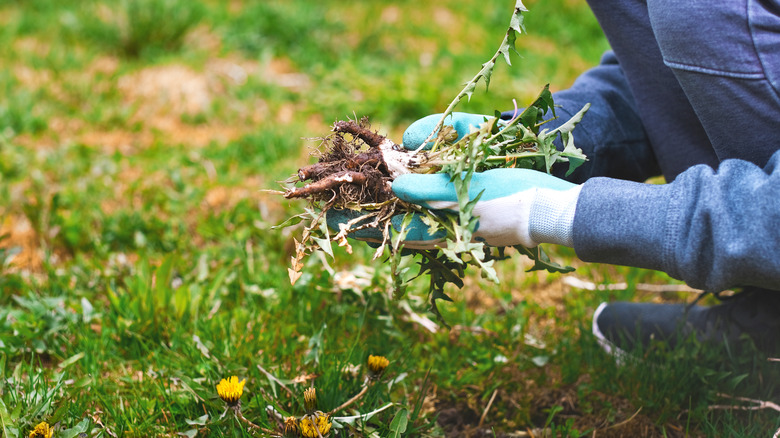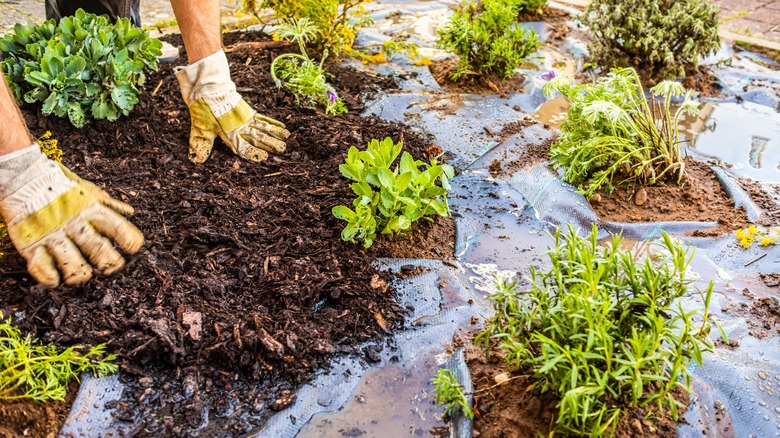What The Weeds In Your Yard Are Trying To Tell You, According To Expert Gardener Alys Fowler
Getting rid of weeds is often a dreaded and tiresome task, leaving you working away to try and save your garden and lawn from unwanted and invasive plant species. But, Alys Fowler, a horticulturist and journalist, wants you to take a moment to reconsider if you really need to pull out all those weeds. "Talking of weeds, it's time we ditched the word altogether," Fowler explained in The Guardian. Have you stopped to wonder why weeds are popping up to begin with? According to Fowler, it sends a message and tells us essential information about our garden's needs.
"Dandelions are saying your soil is a little compact, low on surface nutrients, particularly calcium and potassium; nettles tell you there is too much surface nitrogen (not as good as it sounds)," Fowler explained. "A flurry of annual weeds — bittercress, chickweed, and mouse weeds — say your soil is dominated by bacteria, while thistles, docks, green alkanets, and comfrey are another sign that the surface is a little low on nutrients." As annoying as weeds may be, they have a clear purpose in our gardens, and before yanking them out and moving on with your day, stop to listen to what they are trying to say.
Using weeds to your advantage
It's easy to focus on the trouble weeds pose, but if you examine why they are invading, you'll find that they offer insight into your garden's needs. "Once you start looking into the ecology of anything we flippantly call a weed, you will discover that it is key in recycling nutrients, providing food in the form of nectar and pollen for all manner of insects, in all manner of weather," Alys Fowler explained in The Guardian.
Fowler advises decreasing aggressive weeding, finding that weeds commonly infiltrating your garden will eventually slow and only occasionally appear. Additionally, allow yourself more time to explore what weeds are portraying, like annual weeds sending a warning that your soil is holding excess bacteria. However, not every weed says something is wrong; some may aid other plant life. Brambles, for example, have been observed to help regenerate tree seedlings, protecting them from deer while allowing them room to grow up and out. "In all of this, I am not advocating giving up on gardening, but shifting the perspective on what needs doing," Fowler stated. "Let plants die in place; learn to watch and observe before you make a move. You'll see that nature is way more willing to help than cause trouble."

